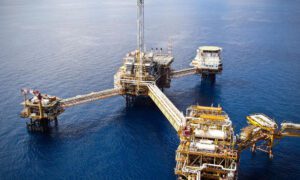
Academic Unions’ Strike: Agreement must be comprehensive for all sides
Over six months of staying home, mammoth Nigerian tertiary institutions students whose academic calendar were brought to halt by lingering Academic unions’ strike, still lie expectant of what situation will tell in the coming week. While grievances and outcries awash the Nigerian public space over the lingering strike, negotiations between aggrieved Tertiary Institutions Unions and the Federal Government on Thursday, 18th August, 2022 was still shrouded with some clouds of grievances. Although the Federal Government claimed that other striking Unions including the Senior Staff Association of Nigerian Universities, (SANNU), Non-Academic Staff Union of Education and Associated Institutions, (NASU) and the National Association of Academic Technologists (NAAT) have accepted to resume work in the next one week, yet a major arrow head in the strike action, the Academic Staff Union of Universities (ASUU) has refused to give any of such assurance over issues believed to be contentious and unsatisfactory to it.
The Federal Government had claimed that while other issues have been resolved, ASUU has refused to accept the offer to resume based on demands that its members should be paid the six months salary withheld by the Federal Government over the period the strike has lasted. The Federal Government on Thursday, 18th August, 2022 insisted that it will not yield to the demand by ASUU for their members to be paid the six months salaries withheld over the ongoing strike, saying it is meant to be the penalty for their action. The Minister of Education, Adamu Adamu, at the 47th session of the State House Ministerial Media Briefing organised by the Presidential Communications Team at the Aso Rock Villa, Abuja, said not paying the backlog will serve as deterrence for others who may contemplate strike in future. He said that other three university based unions that are on strike have accepted to call off the strike in the next one week, except ASUU that has remained adamant insisting that its members should be paid the five months that their salary was stopped.
“All contentious issues between the government and ASUU had been settled except the quest for members’ salaries for the period of strike to be paid, a demand that Buhari has flatly rejected,” Adamu was quoted.
Adamu argued that ASUU went on strike despite the huge investment of trillions of naira the President Buhari regime and agencies such as TETFUND and UBEC in education, hence would have to bear the consequences, mentioning that the demand for payment for the strike period was not tenable as President Muhammadu Buhari has flatly rejected same.
“If you think it is for the government other than what the government is doing in the university to stop strike, the standard government has taken now is not to pay the months in which no work was done. I think this is the only thing that is in the hands of government to ensure that there is penalty for some behaviour like this. So, I believe teachers will think twice before they join strike if they know that at the end they are not going to be paid and the Federal Government is not acting arbitrarily. Before, it was some magnanimity on its part, there is a law which says if there is no work, there will be no pay. I believe this will be a very strong element that will be determining from going on strike,” the Minister said.
Meanwhile, ASUU, on its part raised issues which though may be related to salaries, yet reflected more grievances than mere demands for payment of six months withheld salaries as loudly claimed by the Federal Government. The Union on Thursday, 18th August, 2022, explained that its meeting with the Prof. Nimi Briggs-led committee last Tuesday, 16th August, 2022, ended in deadlock because the committee presented “award of a Recommended Consolidated University Academic Salary Structure (CONUASS), prepared by the National Salaries, Incomes and Wages Commission” which was unsatisfactory to it. ASUU in a press statement, made available to newsman by its President, Prof. Emmanuel Osodeke, argued the ‘award salary’ was “against the principle of collective bargaining, based on the Wages Boards and Industrial Council’s Decree No 1 of 1973, the Trade Dispute Act (1976), ILO Conventions 49 (1948), 91(1950), 154 (1988) and recommendation 153 (1981), Udoji Commission Report of 1974, and Cookey Commission Report of 1981.”
The report, ASUU noted, “also provided a platform for resolving such important issues as special salaries and conditions of service of university staff, university funding, roles of Pro-Chancellors, Vice-Chancellors, and National Universities Commission (NUC). “A key outcome was a special salary scale for university staff known as University Salary Structure (USS).”
ASUU alleged the Federal Government was insincere in its approach to resolving the lingering crisis in the university academic system, demanding that “The Federal Government, through the Ministry of Education, return to the New Draft Agreement of the 2009 FGN/ASUU Renegotiation Committee, whose work spanned a total of five and half years as a demonstration of good faith.”
The union further argued that the “award” presented by the Nimi Briggs-led Team appeared in a manner of “take-it-or-leave-it on a sheet of paper,” noting that “no serious country in the world treats their scholars this way.” In the statement, tagged “Why ASUU Rejects Governments Award of Salary,” the union claimed that “Government imposed the ongoing strike action on ASUU and it has encouraged it to linger because of its provocative indifference. The Munzali Jibril-led renegotiation committee submitted the first Draft Agreement in May 2021 but government’s official response did not come until about one year later! Again, the “Award” presented by the Nimi Briggs-led Team came across in a manner of take-it-or-leave-it on a sheet of paper. No serious country in the world treats their scholars this way.
“Over the years, particularly since 1992, the Union has always argued for and negotiated a separate salary structure for academics for obvious reasons. ASUU does not accept any awarded salary as was the case in the administration of General Abdulsalam Abubakar. The separate salary structures in all FGN/ASUU Agreements were usually the outcome of collective bargaining processes. ‘Leaking economy’ The major reason given by the Federal Government for the miserly offer, paucity of revenue, is not tenable. This is because of several reasons chief of which is poor management of the economy. This has given rise to leakages in the revenue of governments at all levels. There is wasteful spending, misappropriation of fund and outright stealing of our collective patrimony.
“ASUU believes that if the leakages in the management of the country’s resources are stopped, there will be more than enough to meet the nation’s revenue and expenditure targets without borrowing and plunging the country into a debt crisis as is the case now,” it argued. ASUU noted that “at the commencement of the renegotiation of the 2009 FGN/ASUU Agreement on 16th March 2017, both the Federal Government and ASUU Teams agreed to be guided by” some terms of reference, but the Federal Government reneged on its side to abide by the agreement.
It warned that, “Government’s surreptitious move to set aside the principle of collective bargaining, which is globally in practice, has the potential of damaging lecturers’ psyche and destroying commitment to the university system.
“This is, no doubt, injurious to Nigeria’s aspiration to become an active player in the global knowledge industry,” ASUU argued.
Recall that ASUU had since February 14, 2022, embarked on an indefinite strike over unresolved differences with the government. The union had accused the government of failing to honour and implement the Memorandum of Understanding and Memorandum of Action signed between both parties in 2020 – an agreement that was reached to end a nine-month old strike by ASUU in 2020.
Other issues of contention include the government’s poor commitment to the payment of academic earned allowances and the continued use of the Integrated Personnel Payroll Information System (IPPIS). Also, is the grievances of the academic stakeholders over the refusal of the government to adopt the Universities Transparency and Accountability Solution, as it’s recommended substitution for IPPIS, and the proliferation of universities in the country. Grievances by other stakeholders in the nation’s public tertiary institutions system had seen more Unions including NAAT, SSANU and NASU, subsequently joining up in the strike.
The grounds that informed the strike is known to have been clustered with more controversies over contentious issues that have so far stalled agreement between the contending parties. While the Federal Government has claimed other issues of contention have been addressed, except demands for payment of the six months salaries withheld for the period the strike has lingered so far, it is apparent ASUU’s demands transcend such claim. Although, the Minister of Education had informed that the University Perculiar Personnel and Payroll System (U3PS) and the University Transparency Accountability Solution (UTAS) outscored the Integrated Personnel Payroll and Information System (IPPIS) during the integrity tests conducted by the National Information Technology Development Agency (NITDA), affirming that ASUU’s peculiarities will be accommodated in whatever platform that may be adopted, and that currently, the IPPIS has been made to accommodate the issue of sabbatical for lecturers, yet there is more to having a lasting solution to the grievances of the aggrieved parties, most importantly ASUU in this case.
It is therefore, essential for the Government to reach a comprehensive agreement with ASUU accommodating other Unions, within an elaborate scope of systemic architecture not just to get them to work, but for lasting solution to the issues of contest which over the years have formed the bases of unending strikes. The crash dispositions to agreements over time by successive governments have only left the phenomenon of ceaseless strikes which has characterised the tertiary institutions system in the Country with gross academic instability, breaking down the fabrics of excellence demanded of such institutions. The Federal Government should, with this particular case, begin a paradigm shift by making its agreement with the Unions a comprehensive whole, not leaving any side untouched, a deficiency which may constitute the ground for future strike.


